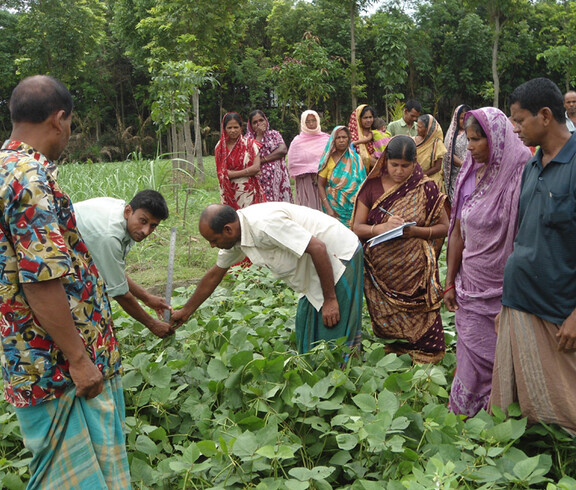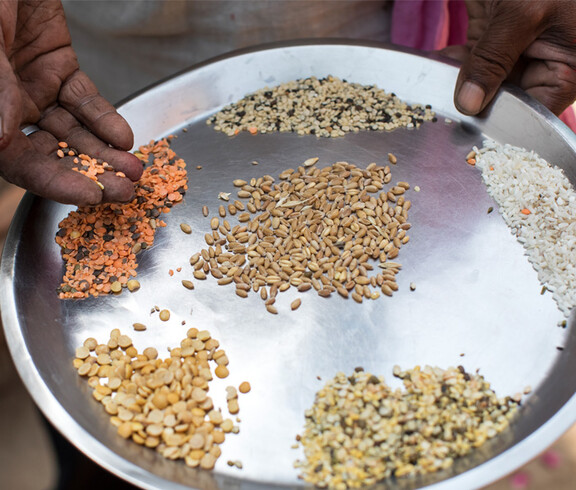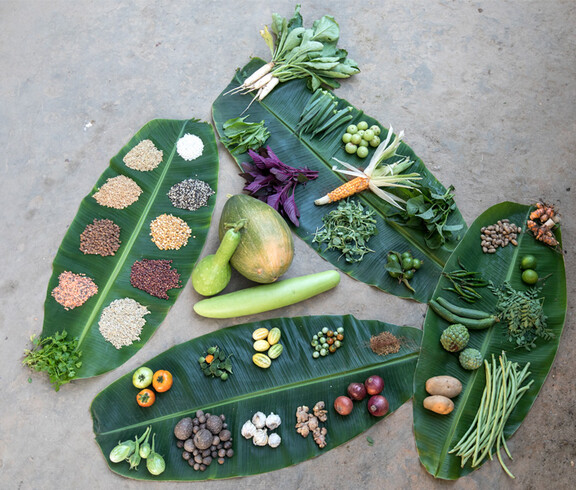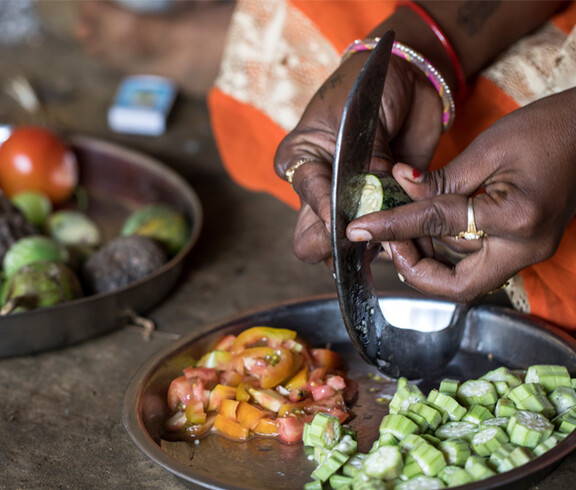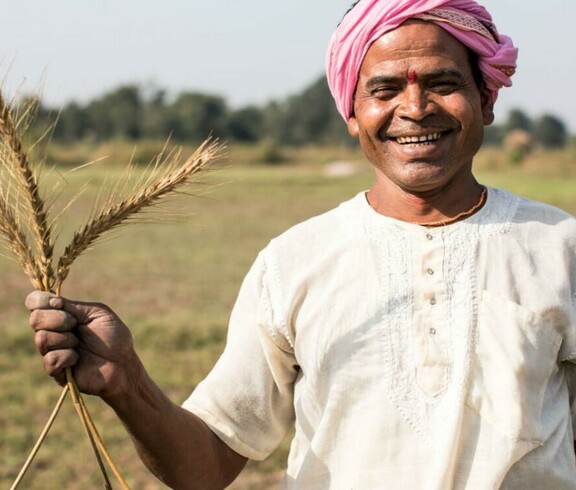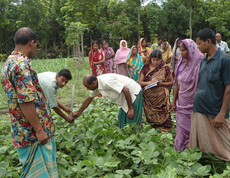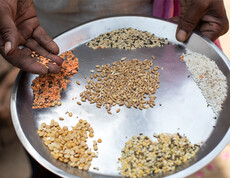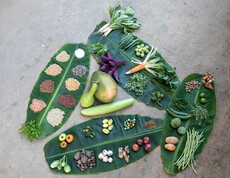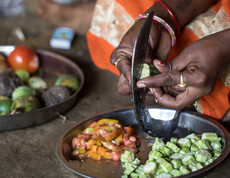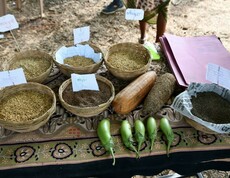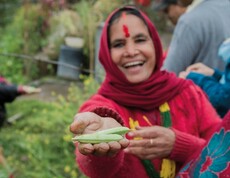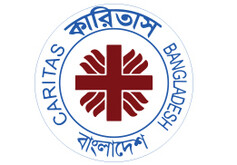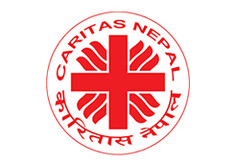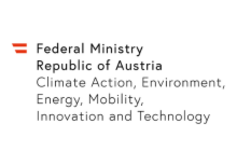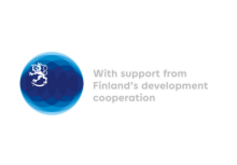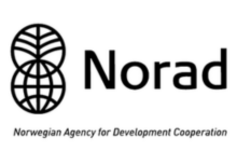SAFBIN
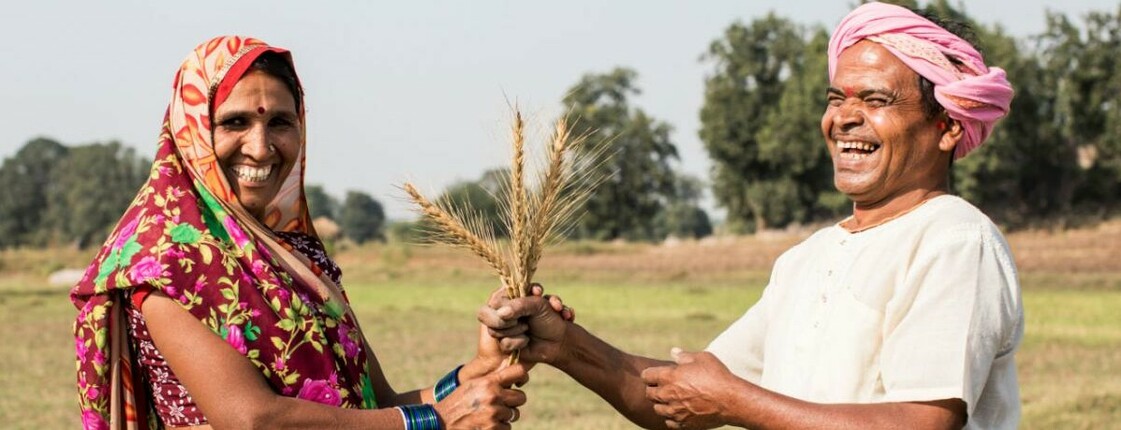
Zwei fröhliche Landwirt*innen auf einem Feld tauschen Getreideähren
Strengthening small farmers in South Asia in times of climate change
One third of all chronically undernourished people in the world lives in South Asia - a region that is severely affected by climate change, disasters and conflicts. Unpredictable rainy seasons, heat waves, cold waves and other weather extremes are increasingly affecting the already difficult living conditions of small farmers.
Strengthening Adaptive Farming and BIodiversity Network (SAFBIN) is a transnational regional programme in South Asia. SAFBIN aims to support 10,000 households and more than 50,000 people in Bangladesh, India, Nepal, Pakistan and Sri Lanka in almost 127 villages to secure their livelihoods despite climate change. First implemented in 2011, the programme is now in its third implementation period, lasting from 2023 to 2028.
This is SAFBIN
Building on a 5 year EU co-financed agricultural research for development programme in Bangladesh, India, and Nepal, SAFBIN was extended to Pakistan during the second programme phase and is currently also being implemented in Sri Lanka. Small farmers are not only the target group, they actively contribute to solving the problem and the consequences of climate change. After all, the future of agriculture and the achievement of various climate goals lies in the hands of small farmers.
Within SAFBIN, they become researchers who can achieve higher yields with the simplest means (e.g. through greater species diversity and biodiversity, advance/delay sowing time, revitalization of resistant local varieties, etc.) and reduce resource consumption and external dependency (e.g. by dispensing with chemical pesticides and recycling/upcycling the local waste). At the same time, they are better protected against the consequences of climate change. There is also cooperation and exchange of knowledge across the political borders of five countries.
The goals of SAFBIN
SAFBIN aims to improve climate-resilient and low-carbon farming for sustainable local food systems, well-being and dignity of smallholder farmers in South Asia. This will be achieved by ensuring:
- Improved resilience of smallholder farmers and their farms to climate change, disasters and volatile market
- Local Food and Nutritional Security of Smallholder Farmers (Securing access to and control over their own land, seeds, rights and know-how for small farmers)
- Increased income and recognition of Smallholder Farmers for their ecosystem services
- Reduced climate induced displacement of youth and women
- Management and protection of their natural resources
What we achieved so far
- SAFBIN I (2011-2016) started in India, Bangladesh and Nepal: 4,180 smallholder families from 90 villages were reached, supporting more than 10,000 farmers. In this time, the number of items in the food basket has increased by 71%
- SAFBIN II (2018-2023) added a fourth country of focus, namely Pakistan: 5,664 community partners were reached directly and more than 7,700 indirectly in more than 20 villages. Over this time, there was an increase in dietary diversity by more than 76%
- 64% of SAFBIN farmers were able to double their income by 2023, 73% of farms are climate resilient, 61.2% of households have improved dietary diversity, and 47% are consuming a balanced diet.
- In India, 85% of small households improved dietary diversity and their farms became climate resistant
- In Nepal, the percentage of farmers consuming more than six food groups increased from 42.3% to 74.6%. More than 45% of SAFBIN farmers doubled their farm production and income.
A world without hunger
In South Asia about 70% of the people are smallholder farmers practicing subsistence farming, which is barely sufficient to meet their food needs. They are most affected by food insecurity, especially due to the increasing effects of climate change. Caritas Austria has been supporting local Caritas organizations since 2011 in providing effective solutions for combating climate change and improving food security.
In line with the 2nd United Nations sustainable development goals (SDG's) and Caritas's vision "A world without hunger by 2030", SAFBIN will support more than 10.000 smallholder farmers in coming years who are affected by the effects of climate change.
This is how your donation helps:
- 50 EUR help setting up a nutrition garden for a smallholder family
- 50 EUR provide a family with a vermicompost unit, that converts organic waste into manure rich in high nutritional content
- 50 EUR provide a family farm with fruit tree plantation
- 100 EUR provide one new poultry, duckery, goatry units for a smallholder farm
- 200 EUR provide a village level awareness programme on climate change, farming systems, food security, land rights and entitlements etc.
More information and updates about the SAFBIN programme can be found on safbin.org.
Contact
Matteo Putzolu
Program Manager Middle East/Asia
1150 Wien

